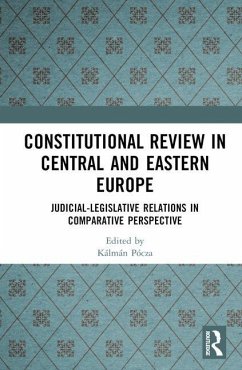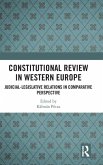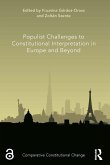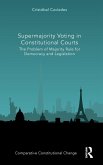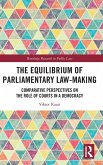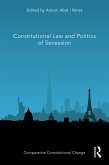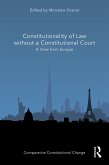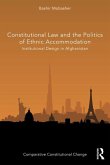Recent confrontations between constitutional courts and parliamentary majorities in several European countries have attracted international interest in the relationship between the judiciary and the legislature.
Some political actors have argued that courts have assumed too much power and politics has been extremely judicialized. This volume accurately and systematically examines the extent to which this aggregation of power may have constrained the dominant political actors' room for manoeuvre. To explore the diversity and measure the strength of judicial decisions, the contributors to this work have elaborated a methodology to give a more nuanced picture of the practice of constitutional adjudication in Central and Eastern Europe between 1990 and 2020. The work opens with an assessment of the existing literature on empirical analysis of judicial decisions with a special focus on the Central and Eastern European region, and a short summary of the methodology of the project. This is followed by ten country studies and a concluding chapter providing a comprehensive comparative analysis of the results. A further nine countries are explored in the counterpart volume to this book: Constitutional Review in Western Europe: Judicial-Legislative Relations in Comparative Perspective.
The collection will be an invaluable resource for those working in the areas of empirical legal research and comparative constitutional law, as well as political scientists interested in judicial politics.
Some political actors have argued that courts have assumed too much power and politics has been extremely judicialized. This volume accurately and systematically examines the extent to which this aggregation of power may have constrained the dominant political actors' room for manoeuvre. To explore the diversity and measure the strength of judicial decisions, the contributors to this work have elaborated a methodology to give a more nuanced picture of the practice of constitutional adjudication in Central and Eastern Europe between 1990 and 2020. The work opens with an assessment of the existing literature on empirical analysis of judicial decisions with a special focus on the Central and Eastern European region, and a short summary of the methodology of the project. This is followed by ten country studies and a concluding chapter providing a comprehensive comparative analysis of the results. A further nine countries are explored in the counterpart volume to this book: Constitutional Review in Western Europe: Judicial-Legislative Relations in Comparative Perspective.
The collection will be an invaluable resource for those working in the areas of empirical legal research and comparative constitutional law, as well as political scientists interested in judicial politics.

